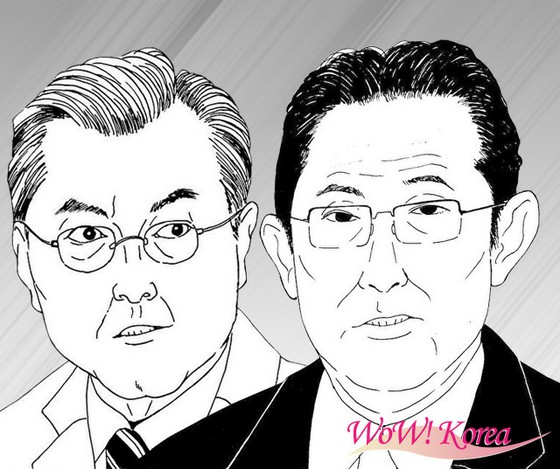 |
The survey was conducted on the 8th, targeting 500 people aged 18 and over throughout South Korea. Many respondents in many age groups answered that the Japanese government should change their attitude first, but for those in their 70s and above, "the Korean government needs to actively improve relations" (40.2%) and "the Japanese government should change its attitude first" (40.9%) antagonized.
Meanwhile, according to Kyodo News, Prime Minister Kishida mentioned the issue of former recruitment litigation in a representative question of the Upper House plenary session on the 13th. "I urge the South Korean side to show an acceptable solution as soon as possible in order to restore Japan and South Korea to a healthy relationship." he said. In addition, Prime Minister Kishida said that the current situation of Japan-South Korea relations, which had deteriorated, could not be left as it is.
Even if the new administration is inaugurated in Japan, it can be seen that the views of Japan and South Korea remain parallel.
Under these circumstances, some South Korean experts have pointed out that the Korean side should take action. It is the Korea-Japan Vision Forum held on the 8th with the theme of "Kishida administration and Korea-Japan relations" where experts on Japan-Korea relations gathered in Korea.
According to Yonhap News Agency, former Ambassador to Japan Shin Kak Soo, who attended, pointed out that "Japan may cooperate if South Korea shows its intention to resolve the issues between the two countries." Hong Seok-hyun, chairman of the Korean Peninsula Peacebuilding, said, “If South Korea takes the initiative, Japan will not be able to stay still. "Respect the judgment of the judiciary" But don't just put off solving the problem and have talks just to take a single photo."
On the other hand, in Osaka, a seminar was held on the 12th with the theme of "Prospects for the international situation surrounding the Korean Peninsula" by gathering experts from Japan. Professor Kan Kimura of Kobe University, who specializes in comparative politics and area studies of the Korean Peninsula, said, "First of all, we have to return to the situation when 10 million people come and go between Japan and South Korea a year before the spread of the COVID-19 virus. This is the beginning of improving relations."
Among them, even one week after Prime Minister Kishida took office on the 4th, telephone talks with President Moon Jae-in have not yet been held.
After taking office, Prime Minister Kishida has spoken over the phone with US President Joe Biden, Australian Prime Minister Morrison, Russian President Vladimir Putin, Indian Prime Minister Modi, and Chinese President Xi Jinping. However, he could not make a telephone call with President Moon, and it is believed that South Korea was put off by the priority of Japanese diplomacy.
A senior official of the South Korean presidential office has stated that the telephone talks between the two leaders are "adjusting the schedule" so it seems that the talks between the two leaders will not be far away. By the way, former Prime Minister Suga had a telephone talk with President Moon eight days after taking office (9th day).
There is a chengyu saying (chinese idiom) that is full of Asian wisdom "does not dig a well until he/she feels thirty". In Japanese "to not dig a well until one is thirsty", while in Korean saying is, "Thirsty people dig wells." However, the nuances of the metaphor are slightly different. In Korean, it is close to the meaning of "the person in trouble moves first."
In the Korean style, a person who says "Let's have a telephone conversation in a hurry" is treated like a "weak person in trouble". In other words, the impression is that President Moon offered a telephone talk first as long as he felt "hierarchical superiority" due to the self-esteem of Little China, or as long as he wanted to continue to mount "moral superiority" due to issues such as the comfort women issue.
2021/10/18 21:06 KST


